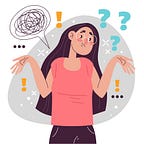In this era, learning is accessible yet impossible
I remember as a kid, I used to listen in rapt attention as my Ajji and Aai (Grandmother and mother) would tell me the stories of Takshashila and Nalanda, the world-class universities that welcomed anyone who wanted to learn. Seekers of knowledge from all across the globe would travel to these universities and stay there until their thirst for knowledge had quenched. And it was just as simple as that, there weren’t applications and admissions and a gazillion dollar fee. All you needed to learn was the will to learn. And I must say, there have been few things that have fascinated me as much as that simple attitude towards learning.
Now, mythology aside, we have heard this countless amount of times ourselves. That the only precursor to learning is the will to learn. But how true is that? We carry devices with infinite knowledge in our hands on a regular basis but does knowledge equate with learning?
The accessibility of learning
I will not get down to the rates of literacy and the shortcomings of the schooling systems across the globe, because that deserves an entire series of its own. Focusing only on learning, what is it even? The acquisition of knowledge? Sure.
In that case, we are pretty much living in the golden age for learning. As of 2017, there are over 9400 online courses available for students across the globe and a lot of them are free. The same study shows that over 81m students are learning through these courses.
Sounds good? Let us put things into perspective.
According to this survey, 0.01% of the world population is making use of the endless learning tools available at hand. Why?
According to the same survey, the subjects offered in the MOOCs are usually technical or business related and a very small portion of the courses caters to the humanities. This is because the primary audience for these online courses is not your average university student but the career learner who wants the certification/minimum expertise for the career ladder.
If that is who the MOOCs are catering to, no wonder that over 99% of the population does not make use of this.
The average learner
Usually, we are introduced to learning formally, first in schools, even though it is what we start doing from the moment we open our eyes as a baby. The reason why a positive school experience is absolutely necessary is that it sets the tone for learning for a lot of students.
We either develop a passionate chase for knowledge or we decide to do the bare minimum to get the necessary rankings in order to lead an okay life. But today, we don’t have to be defined by the schools, we have an endless repository of knowledge at our fingertips. This is where everything changes.
Only, we are watching cat videos with the repository, and not really learning much. Why is it that despite the opportunity, and the accessibility, we are living in ignorance of not only advanced knowledge, but the kind that is crucial to our well being and growth?
How learning works
To answer the above question, let us take a look at how learning occurs in our brain. Based on various studies and research, learning is not simply consuming facts. The acquisition must happen through our senses, feelings, intuition, beliefs, values, and will.
Learning occurs when we are able to
- Gain a mental or physical grasp of the subject.
- Make sense of a subject, event or feeling by interpreting it into our own words or actions.
- Use our newly acquired ability or knowledge in conjunction with skills and understanding we already possess.
- Do something with the new knowledge or skill and take ownership of it.
This means, that merely consuming facts will not make us learn anything new unless we are naturally adept at interpreting knowledge. To put it in smartphone terms, we cannot learn through MOOCs or youtube videos nearly as effectively as we do in class.
Interaction with a facilitator and a group is crucial to develop a basic understanding of the subject matter at hand and it is absolutely necessary to apply the knowledge in order to retain it. This means that the endless math exercises we did s a kid, had a point to them.
The illusion of accessibility
So even though we have endless information to learn from, there are no tools available that we can process it with. This illusion of accessible education is dangerous. Not only because it makes us believe that anything is possible, but because, the quality of education that every single one of us deserves, is a privilege of a very few. The cost of actual education keeps rising, and there is this utopian delusion created to supplement that void.
As the population and costs keep going up, the number of thinking individuals keeps shrinking, and only because real education is apparently now a luxury.
